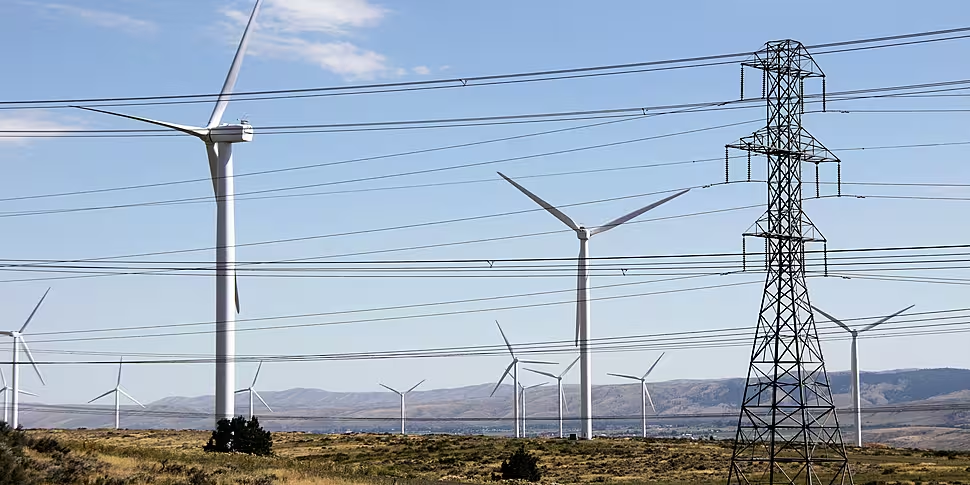Ireland's energy emissions are at the lowest rate in 30 years, but more needs to be done for Ireland to reach its legally binding climate targets.
In 2023, Ireland's energy emissions were down 8.3% compared the 2022 according to a report published today by the Sustainable Energy Authority of Ireland.
The data is promising, however the SEAI said Ireland will have to "increase the rate of change significantly" in order to meet emissions targets.
Energy demand
Last year, Ireland's total demand for energy increased by 0.8%, with transport and commercial services leading this increased demand.
The energy demand from transport was up by 4.5%, and that mainly came from car use and aviation.
The commercial sector - which includes data centres - saw a 6.9% increase in energy demand compared to 2022.
The residential sector, however, saw a 25-year low in energy demand.
The SEAI said a number of factors may have led to this, including a reduced need to heat homes during a warmer winter, high energy prices and more home energy upgrades.
Fossil Fuels
In terms of renewables, 2023 was a record year, although the SEAI said Ireland still relies heavily on fossil fuels.
"It is clear from the data that the pace of growth of energy demand needs to be strategically managed and timed, so that calculated decisions are made about where and when growth should happen," the SEAI said.
Despite the drop in emissions rate, the SEAI said there is "no room for complacency".
"Early 2024 data suggests that residential demand for gas and heating oil increased this year, indicating that residential energy demand and emissions may go up in 2024," the authority said in a statement.
"It is also likely that Ireland’s transport and electricity emissions will exceed their sectoral emission ceiling in the first carbon budget."
The SEAI said Ireland could face "considerable fines" for failing to deliver on its climate commitments.
The authority's CEO William Wash said Ireland is facing a "difficult" challenge in meeting its goals, and said "an urgent change is needed"to shift away from fossil fuels.
Feature image shows electric generating windmills, Alamy.









